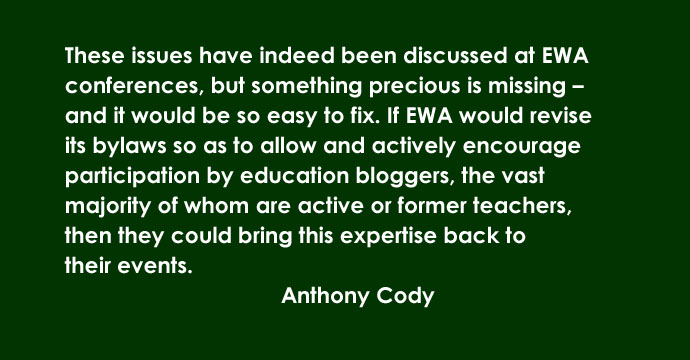The Crucial Debate the Education Writers Association Refuses to Hold

By Anthony Cody.
Education professor Paul Thomas has raised a powerful challenge to the state of education journalism in two recent posts. The first post tackles an article by New York Times reporter Motoko Rich, focused on the latest supposed crisis in education, that not enough high schoolers graduate “college and career ready.” Thomas provides a clear refutation of many of the faulty premises on which Rich bases her story, pointing out that similar wails regarding our schools have been heard for the past hundred years, with no evidence to support them. He writes:
The nebulous relationship between the quality of education in the U.S. and the fragility of the U.S. economy simply has never existed. Throughout the past century, no one has ever found any direct or clear positive correlation between measures of educational quality in the U.S. and the strength of the U.S. economy.
Thomas goes on to point out that most reporters covering education issues have scant direct experience in the field, and tend to rely on the often flawed “expertise” of think tank sources, most of whom also lack relevant experience in public schools. He states:
Mainstream media appear fatally wed to only one version of the U.S. public education story: crisis.And thus, journalists reach out to the same know-nothings (political leaders, political appointees, think-tank talking heads) and reproduce the same stories over and over and over.
After Thomas tweeted his critique, a reporter at the Hechinger Report, Nichole Dobo, responded, challenging the idea that education journalism suffers because writers lack experience in the field. SheThe Crucial Debate the Education Writers Association Refuses to Hold - Living in Dialogue:
